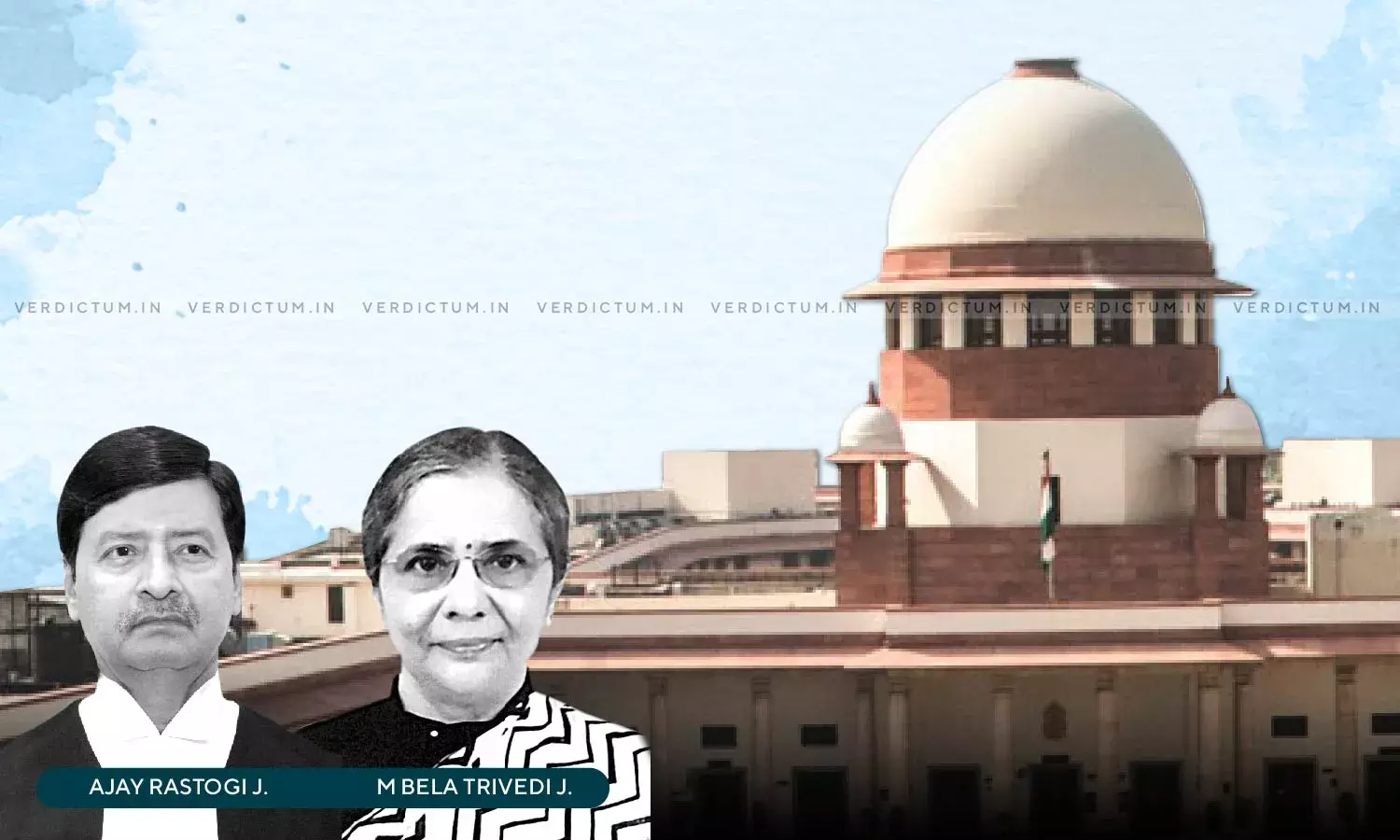Supreme Court Delivers Split Verdict Vis-à-vis OBC And EWS Candidates For The Post Of Civil Judge In Rajasthan

The Supreme Court Two Judge Bench of Justice Ajay Rastogi and Justice Bela M. Trivedi recently delivered a split verdict pertaining to a matter where Other Backward Classes (Non-Creamy Layer) (OBC-NCL), More Backward Class (MBC) and Economically Weaker Section (EWS), who were qualified in the selection process held for the post of Civil Judge, were not considered in the category to which they belonged for the reason that the certificate of the category which was furnished by each of the Appellants was subsequent to the last date indicated in the advertisement i.e., Aug 31, 2021.
“When the rules are silent and no date is notified to satisfy the eligibility requirement under the advertisement, the eligibility criteria shall be applied by reference to the last date of application by which applications are to be received by the recruiting authority”, added the Bench.
While Justice Ajay Rastogi was of the view that the Respondents should consider each of the Appellants for appointment who could not be adjusted against the advertised vacancies of Civil Judge against future vacancies, Justice Bela M. Trivedi stated that if the Appellants were allowed to produce the certificates issued after the last date fixed for the submission of applications mentioned in the advertisement, then even other candidates similarly situated as the Appellants might raise a grievance for not giving them such opportunity.
Advocate K. Paari Vendhan and AoR Pallav Mongia appeared for the Appellants, whereas Advocates Gopal Jha and Ajay Chowdhary appeared for the Respondent.
Going by the factual background of the case, the caste certificate had to be produced in the prescribed format by the competent authority for seeking reservation and the notification clearly indicated that the applicant had to produce, on demand of the recruiting authority all such documents or certificates while claiming benefit of reservation required by the Rajasthan High Court or the concerned recruiting authority. The relevant requirement was notified by the Respondent for the first time by its notice dated Aug 04, 2022. Although the applicants was permitted to appear in the interview under the interim order of the High Court but were not permitted to claim the benefit of their certificate relating to category which was furnished and were treated to be in the open category. When the result was published, each of the applicant secured higher marks in their respective category but the candidates with lower merit were selected by the respondent. Since each of the applicant failed to qualify in the open category, they were finally denied from being considered for appointment to the post of Civil Judge.
After considering the submissions, Justice Rastogi observed that the premise on which the claim of the present Appellants had been nonsuited by the High Court was without foundation having no nexus, since the Rajasthan Judicial Service Rules, 2010 was a complete code but at the same time was silent in reference to the date when certificate of the category had to be furnished.
“Even the advertisement nowhere indicated as to what should be the crucial date for the purpose of furnishing the caste related certificate by the applicants who intended to participate in the selection process”, added the Bench.
Justice Rastogi noticed that the reservation to MBC-NCL and EWS category had been introduced for the first time and the candidates were completely alien to the procedure and the format in which the certificate of their category had to be furnished.
While stating that the High Court had gone wrong and was influenced with the condition of eligibility to be looked into on the last date of application, Justice Rastogi directed the Respondents to consider each of the Appellants for appointment who could not be adjusted against the advertised vacancies of Civil Judge against future vacancies.
On the other hand, while disagreeing with the view taken by Justice Rastogi, Justice Bela M. Trivedi noted that the certificates to the persons belonging to the reserved categories were being issued by the competent authorities of the respective State Governments keeping in view the provisions contained in the Constitution of India.
Justice Trivedi observed that the date of issuance of certificate had greater significance for the purpose of ascertaining as to whether the candidate claiming to belong to a particular reserved category on the date when he or she applied for the post in question under such category, in fact belonged to the said category on the date on which such application was made or on the date prescribed in the advertisement.
While referring to the landmark Nine Judge Bench decision of this Court in Indra Sawhney v. Union of India [1992 Supp (3) SCC 217], Justice Trivedi highlighted that the exclusion of ‘creamy layer’ must be based on social advancement and not based on mere economic criteria.
Elucidating that the candidates claiming reservation had to furnish valid certificates duly issued by the competent authority as per the rules in the prescribed format, Justice Trivedi stated that “It cannot be gain said that the date of interview or selection would always be uncertain and the uncertainty of the date may lead to an anomalous situation in as much as even those candidates who were not eligible to apply under the reserved category on the date of making application, may apply under the reserved category and subsequently obtain the certificate by the time the interviews are held. In such circumstance, the possibility of playing mischief also cannot be ruled out”.
Cause Title: Sakshi Arha v. Rajasthan High Court and Ors.
Click here to read/download Judgment

